

Brian Howey, Mukta Joshi and Nate Rosenfield are reporters for Mississippi Today. They examined the power of sheriffs’ offices as part of The New York Times’s Local Investigations Fellowship. This story was reported in collaboration with Reveal from the Center for Investigative Reporting. To listen to an audio version of this investigation, visit the Reveal website. This story also was supported by the Fund for Investigative Journalism, the Alicia Patterson Foundation and The Pulitzer Center.
For years, guards in a jail outside Jackson terrorized those in their care, according to dozens of people who say they endured, witnessed or participated in violent assaults.
Guards dragged inmates into blind corners, where cameras couldn’t capture acts of violence. They beat people behind closed doors. And they encouraged favored inmates to join in on the brutality.
Former inmates and guards said the violence at the Rankin County jail created a culture of fear and was widely accepted by officials as a way of keeping order, an investigation by Mississippi Today and The New York Times has found.
More than a dozen former inmates recounted being beaten for nonviolent infractions, like talking back to guards or getting caught with contraband. Many said a special group of inmates, known as trusties, helped guards beat troublemakers, lending fists whenever needed. Sometimes, the jail’s highest-ranking officials instigated the punishments or handed them down themselves, according to former guards and inmates.
The Rankin County Sheriff’s Department, which runs the jail, has a documented history of brazen violence. Last year, the Justice Department began investigating the agency for potential civil rights violations after Mississippi Today and The Times revealed that a group of detectives and patrol deputies, some of whom called themselves the “Goon Squad,” had been torturing suspected drug users for nearly 20 years.
This portrait of life inside the Rankin County jail is drawn from interviews with more than 70 former inmates. Many of their descriptions of widespread violence are supported by medical records and photographs, as well as incident reports written by guards and a video that shows guards shocking a man with an electrified vest.
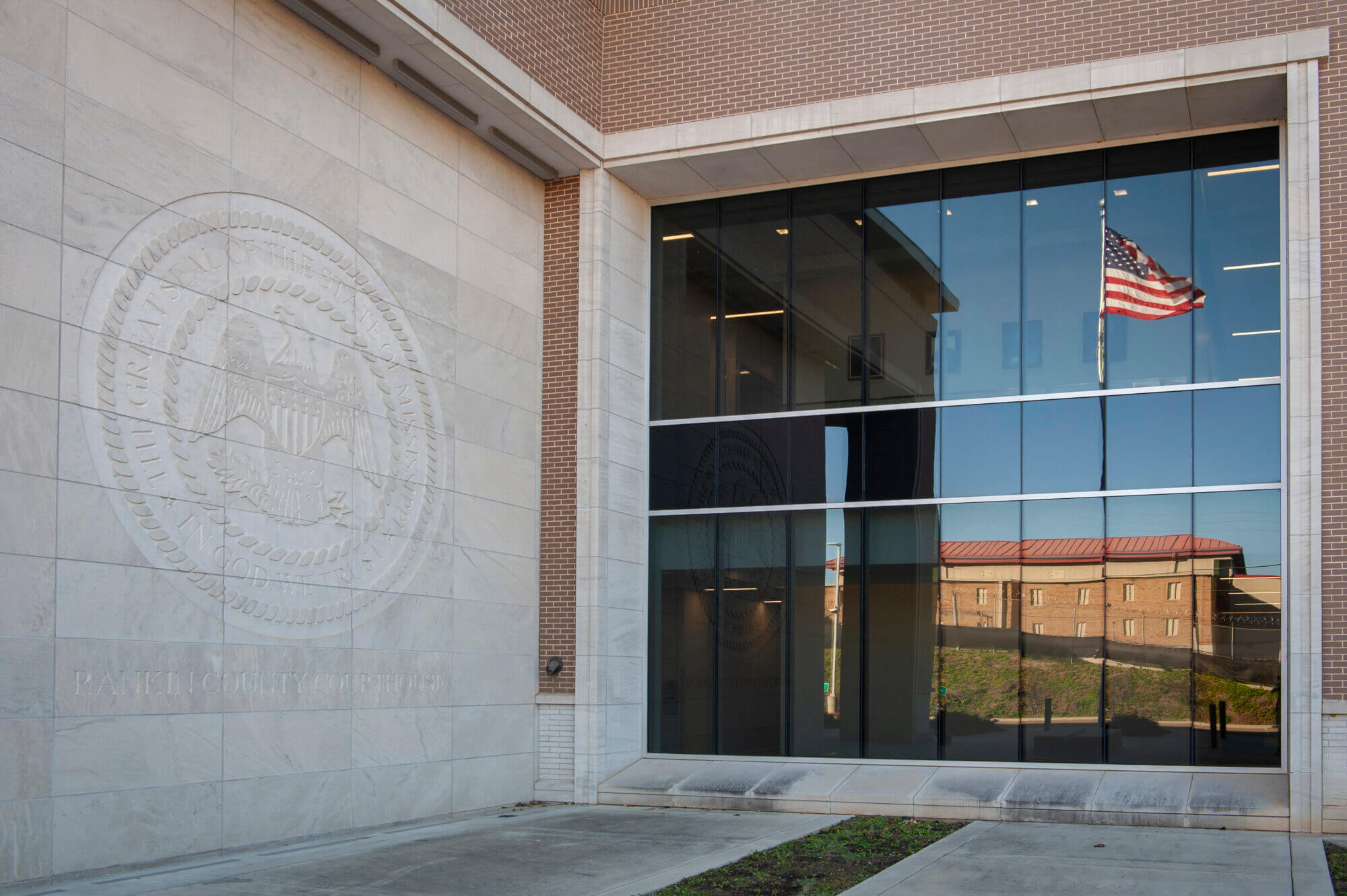
Four former guards, three of whom asked to remain anonymous, also said they had witnessed unjustified beatings by other guards and trusties. Most described the violence as a weekly occurrence.
In a statement, the department’s attorney, Jason Dare, called the reporting “baseless.” The Rankin County jail, he wrote, “is one of the cleanest and best-run jails in Mississippi, with jailers never having been found to use excessive force in violation of the Fourteenth Amendment.”
After reviewing the findings, Sean Tindell, the commissioner of the Mississippi Department of Public Safety, said on Wednesday that agents from the Mississippi Bureau of Investigation had been assigned to investigate the allegations.
Since 2013, at least 11 inmates from the jail have sued the department, alleging they had been assaulted by guards or trusties. The vast majority represented themselves and most of the lawsuits were dismissed because of missed deadlines and court fees, or other technicalities.
The attacks, described in the lawsuits and in interviews with former guards and inmates, ranged in severity from slaps and whippings to brutal beatings that left inmates with bloody wounds and broken bones. Three guards and nearly two dozen former inmates said that trusties and guards would purposefully drag inmates into areas with no surveillance cameras before beating them.
Morgan Curtis, a former trusty who has been in and out of the jail since 2015, said the way guards would order trusties to attack inmates was “like a command to a pack of dogs.”
In interviews, nine former trusties, most of whom requested anonymity because they feared retaliation, admitted to helping guards beat inmates. They said the highest-ranking trusties were expected to back up guards during volatile situations or attack inmates so that guards would not have to do so themselves.
This group of trusties, recognizable by their blue jumpsuits, earned a nickname: the Blue Wave.
One former trusty described an incident from 2020. He said that on the orders of guards, he beat an inmate who had flooded his cell, kicking him repeatedly.
The following year, the jail’s top administrator, Barry Vaughn, confronted an inmate who had failed a drug test. Vaughn punched him so hard, the inmate said, that it broke his nose and knocked out two dental crowns.

Christian Dedmon, one of five former Rankin County deputies who was sentenced to federal prison for torturing two Black men in 2024, said that while he was working at the department he had watched Vaughn beat inmates in his office. A former guard described seeing several similar beatings. Vaughn declined to comment on the allegations.
In 2019, a man who briefly escaped the jail was lifted into the air by his throat and choked by a sheriff’s deputy, several inmates and a guard said. Bryan Bailey, the sheriff of the department, later bragged about the incident, according to Dedmon.
Dedmon has sent hundreds of emails from a federal prison in New Jersey, describing how his willingness to partake in violence helped him rise through the ranks. He has said that he wanted it known that the brutalities he committed were part of a deeply ingrained culture at the department.
He previously shared information about the use of taxpayer-funded equipment at Sheriff Bailey’s family farm, allegations that led to an investigation by the state auditor.
“They made me powerful and respected, made me actually feel like somebody, like I had done a good job,” Dedmon wrote. “It’s OK to beat drug addicts, it’s OK to take from the taxpayer, so why would I not mirror them?”
Beatings behind closed doors
The Rankin County Adult Detention Center is tucked behind the courthouse on the main drag of Brandon, a town of about 25,000 people with one of the lowest crime rates in the state.
Several hundred inmates, many of them accused of drug crimes and other nonviolent offenses, live in rows of beige cells stacked two stories high. Many have not been convicted of a crime and are awaiting their day in court.
Over 10 months, reporters examined 69 alleged incidents of violence against inmates at the jail that occurred from 2012 to 2024.
They included 21 encounters in which guards documented that they had used force against inmates, and why, in incident reports. These reports are routinely filed whenever guards encounter issues. Their descriptions of violence differed greatly from what inmates said had happened.
But in a number of cases, reporters were able to interview eyewitnesses who supported the accounts of the victims. In several cases, medical records corroborated the injuries that inmates described.

In the case of Larry Buckhalter, the violence was filmed — by a guard.
In 2018, Buckhalter began a one-year sentence for possessing a small amount of cocaine. He was intellectually disabled, his family said, and people often took advantage of him.
According to three former guards who spoke on the condition of anonymity, Buckhalter was nicknamed “Crying Larry” by guards and other inmates because he had a habit of pestering jail staff with small requests.
One day, he asked for a Coca-Cola. A cellphone video obtained by Mississippi Today and The Times shows Buckhalter sitting quietly in a chair, strapped into a stun vest that is typically used to control violent inmates during court hearings.
Off camera, a man jokes that Buckhalter is going to bite off his tongue. A woman, who is also off camera, tells Buckhalter to give his consent.
Buckhalter takes a deep breath. “My name Larry and I volunteer to this,” he says.
The vest is activated. Buckhalter screams as his body convulses.
“Now you get a Coke,” the woman says. “It’s all over! I’m so proud of you, Larry!”
In his statement, Dare, the department attorney, did not address the guards’ actions. He criticized the reporting as “alleged rumors by unnamed sources who have no personal, first-hand knowledge of events,” and pointed out that reporters had not spoken to Buckhalter, who died in 2021.
Tindell, Mississippi’s public safety commissioner, called the video “appalling and utterly unacceptable.”
David Fathi, the director of the National Prison Project at the American Civil Liberties Union, said that using force can be justified in certain circumstances, like if an inmate poses a threat; but doing so without cause or as punishment, he said, is “categorically inappropriate.” Corporal punishment in U.S. jails and prisons was deemed unconstitutional in the 1960s.
Fathi reviewed several incident reports filed by guards. He said the reasons they cited for using force were so vague they should have raised red flags to supervisors, and that the justifications fell far short of the typical threshold followed by jails and prisons.
In one such report, a guard wrote that he had struck an inmate, Dustin Rives, in the face because Rives had verbally threatened another guard. The blow broke Rives’ jaw, medical records show. Another report stated that guards struck Carvis Johnson and threw him to the floor in 2020 because he yelled threats and turned toward them after being ordered to face a wall.
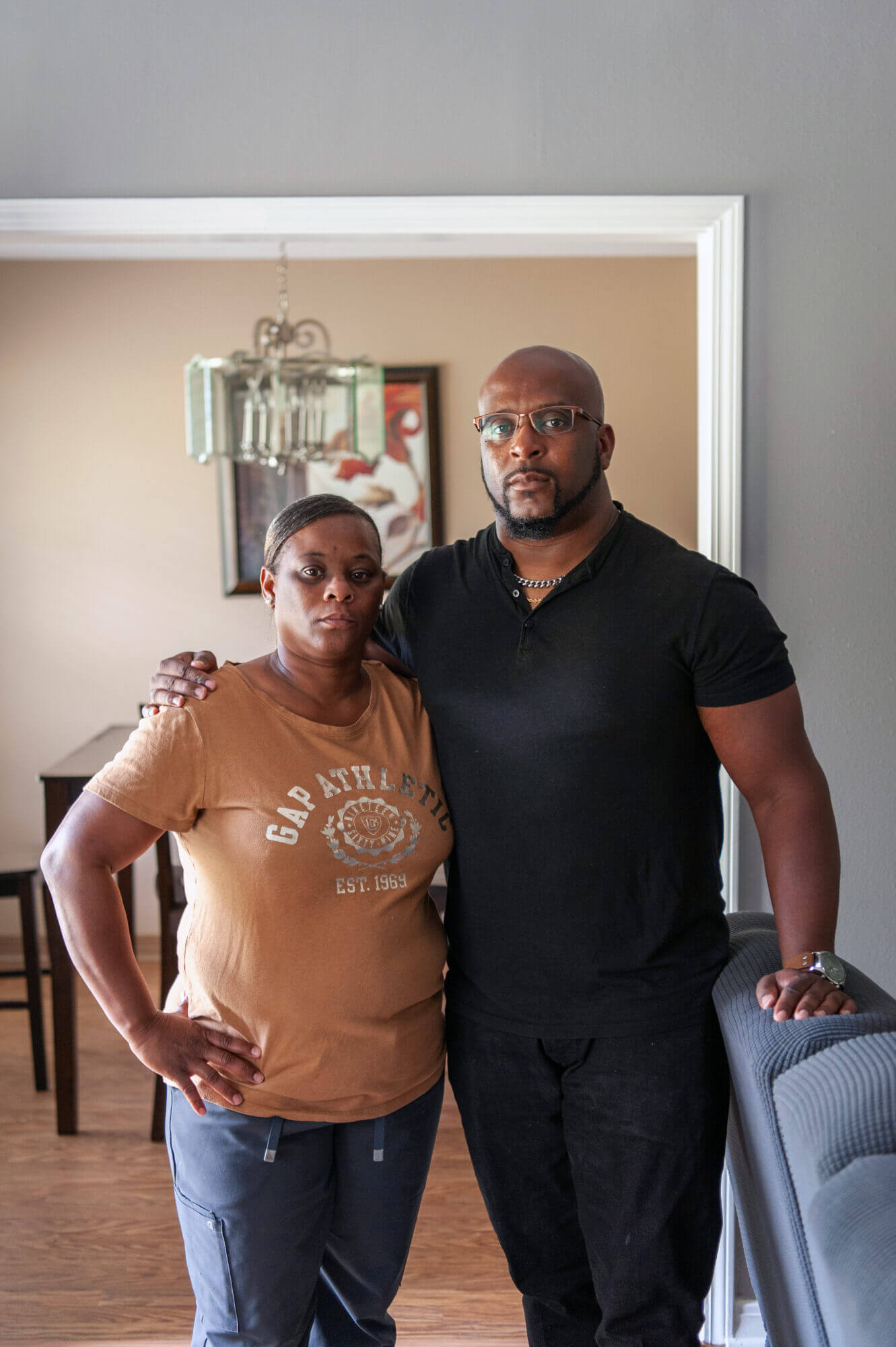
For years, the man in charge of monitoring the jail was Vaughn, a captain who was recently promoted to undersheriff, making him second-in-command of the sheriff’s department.
According to a former deputy, a former guard and 14 former inmates, Vaughn often beat inmates who broke the rules, slapping and whipping them during interrogations in his office.
“ When you walked through his door, he had a shelf. And on the side of the shelf, he had like a wooden stick, a wooden baseball bat, two or three antennas,” said Cameron Kennedy, a former inmate who said Vaughn had questioned him on several occasions.
In June 2021, Vaughn called Kennedy and several other trusties who had failed drug tests into his office, one by one.
When Kennedy refused to explain where they had gotten the drugs, he said, Vaughn slapped him hard enough to give him a black eye.
Three of the other men who had failed drug tests said Vaughn had punched or whipped them with a car antenna. One of the men was Woodrow Lamont Lewis, the trusty who said Vaughn had knocked out his dental crowns that day. The men said they also saw other inmates return bloodied and bruised from Vaughn’s office.
A few months after the failed drug test, Kennedy was caught with a cellphone, an incident report shows. Vaughn handcuffed him to a chair and struck his shins and thighs with a car antenna, he said.
“He never did stop,” Kennedy said. “I’m talking about, like, 10 or 15 minutes, rapping me with it.”
Dedmon, the former deputy who is in prison, wrote in an email that he once saw Vaughn repeatedly punch an inmate who had smuggled drugs into the jail.
Vaughn directed reporters to speak with the department’s attorney, who denied the allegations.
Cigarettes and ‘free world’ chicken
Some of the country’s first trusty programs began in the early 1900s in Mississippi prisons.
Places like Parchman, a notorious prison in the Mississippi Delta, were known to select trusties from among their most violent inmates. The trusties, armed with guns and whips, were tasked with disciplining other inmates or forcing them to perform backbreaking work in cotton fields.
A federal court ruling in 1972 deemed trusty-on-prisoner violence unconstitutional, leading to the widespread dismantling of the programs in prisons across the nation.
Today, modern versions of trusty programs are common in county jails, though participants are generally banned from using physical force. These programs put nonviolent offenders to work, helping them learn job skills.
In Rankin County, many former trusties spoke glowingly about the program, crediting it with turning their lives around.
“It was the biggest blessing in my life,” said Cameron McKenzie, a former trusty. “I’ve been out now 20 months. I’m married, got full custody of both my kids, just bought a house, good job, you name it.”
Many inmates in the county jail are there only for short periods, while they await sentencing, but trusties usually serve their entire sentence in the facility, rising through the ranks over months or even years.
The most senior trusties — those who earn blue suits — have far better living conditions than other inmates. Former trusties said they slept in their own cellblock, in unlocked cells, and sometimes got passes to visit their families.
Many could roam the facility freely, play video games and work outside the jail. One former trusty, Cameron McCaskill, said he was allowed to keep a pet dog and order pizza.

“A blue suit is unrestricted,” Sheriff Bailey said during a 2020 interview with a Mississippi lobbying group. “Once they get a blue suit status, that is almost like being an employee here.”
Dare said trusties were not allowed to use force.
“ I do not believe that is specifically spelled out in a policy,” he said in an interview. “I do know it is a practice that trusties do not go hands-on.”
But several former guards and participants of the program said that the jail staff expected some trusties to provide extra muscle in exchange for their privileges.
“ If something is going on with the officer and they need assistance, you need to be there,” said Lewis, the former trusty. “If you ain’t there to help them, whether they are winning or losing, then you already know you’re next.”
Three others said trusties were rewarded, sometimes with “free world” food, for joining the violence.
“People would do just about anything for a cigarette, or a box of Church’s chicken with a honey biscuit,” said Phillip Smith, a former trusty. “That was the motivation of the Blue Wave.”
Dozens of former inmates, including many who participated in the program, said they had witnessed trusties hitting or kicking other inmates, or holding them down while guards beat them.
Of the 11 inmates who have sued the sheriff’s department since 2013, five said in their lawsuits that trusties attacked them with guards. All but one had their lawsuits dismissed.
Carvis Johnson, an inmate who had a long history of disciplinary infractions, claimed in a 2020 lawsuit that he had been beaten by guards and trusties. Court records show that Mr. Johnson settled his lawsuit, but the department declined to provide further details about the settlement.
Incident reports show that a confrontation began after Mr. Johnson shoved feces under his cell door and broke a sprinkler, flooding his cell. Trusties were brought in to clean up the mess. Guards led Mr. Johnson out of his cell and knocked him to the floor after he verbally threatened them, the reports show.
In an interview, Brock Reed, a former trusty, said a guard told a group of trusties to give Johnson “a sample” and that they should beat him because they would be the ones stuck cleaning up his mess.
Reed said the guards led Johnson to a corner widely known for being a camera blind spot. A supervisor’s routine review of the incident confirmed there was no security camera footage of what happened, in part because “hallway camera does not show where inmate was in the hall.”
When Johnson hit the floor, Reed kicked him in the hip and lower back, he said.
“I wasn’t going to be the one trusty to tell the police, ‘No, I’m not doing this,’” he said. “I know how they look at you for that.”
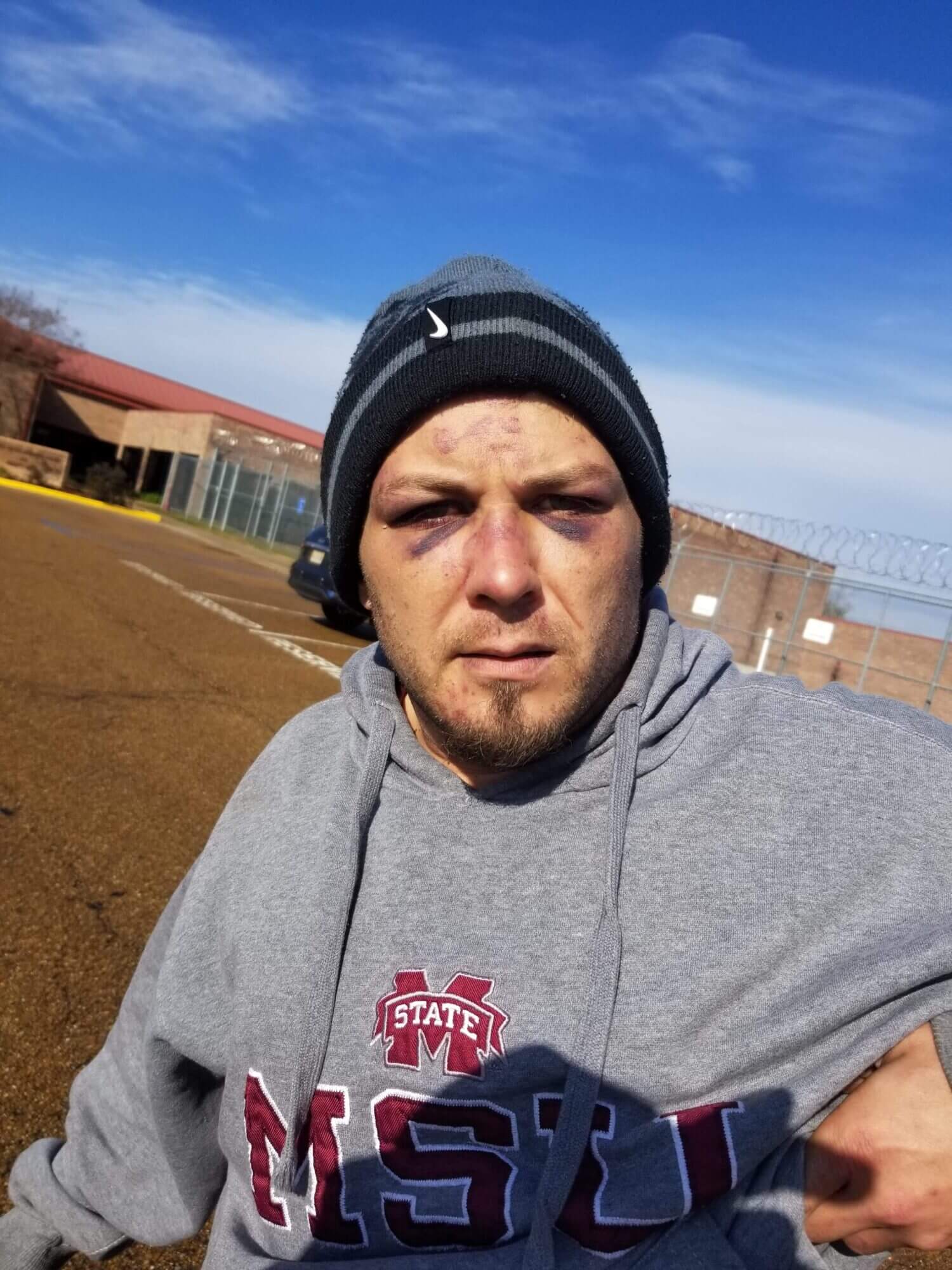
Christopher Mack, a former inmate, sued the department last year, claiming trusties and guards beat him in 2021. When he made bail and left the jail with twin black eyes the next day, Mack said, Sheriff Bailey approached him and asked who had caused his injuries.
“ I looked at him and said, ‘Mr. Bailey, you know who did this to me, your officers and trusties did this to me,’” Mack said.
The sheriff cursed under his breath, Mack said, and stormed off.
A battered escapee and a bragging sheriff
In September 2019, William Keith Richards found out what could happen to trusties who took advantage of their freedom.
Richards, a blue-suit, had nearly completed his sentence when he walked out of the jail one Friday. Officials did not notice he was gone until he missed church that Sunday, an incident report shows.
When Richards was caught, other blue-suit trusties were ordered to gather at a garage entrance of the jail, where Bailey berated them for not informing guards of the escape, four former trusties said in interviews.
Bailey told the trusties they should take a good look at Richards, because he was the reason they were about to lose their special privileges, two of them said.
Richards was escorted back to the jail by Deputy Wes Shivers, a 6-foot-8 former U.F.C. fighter. After they arrived, Shivers lifted the inmate into the air by his throat and choked him, said two former trusties and a former guard. In an interview, Shivers confirmed that he had returned Richards to the jail but denied choking him.
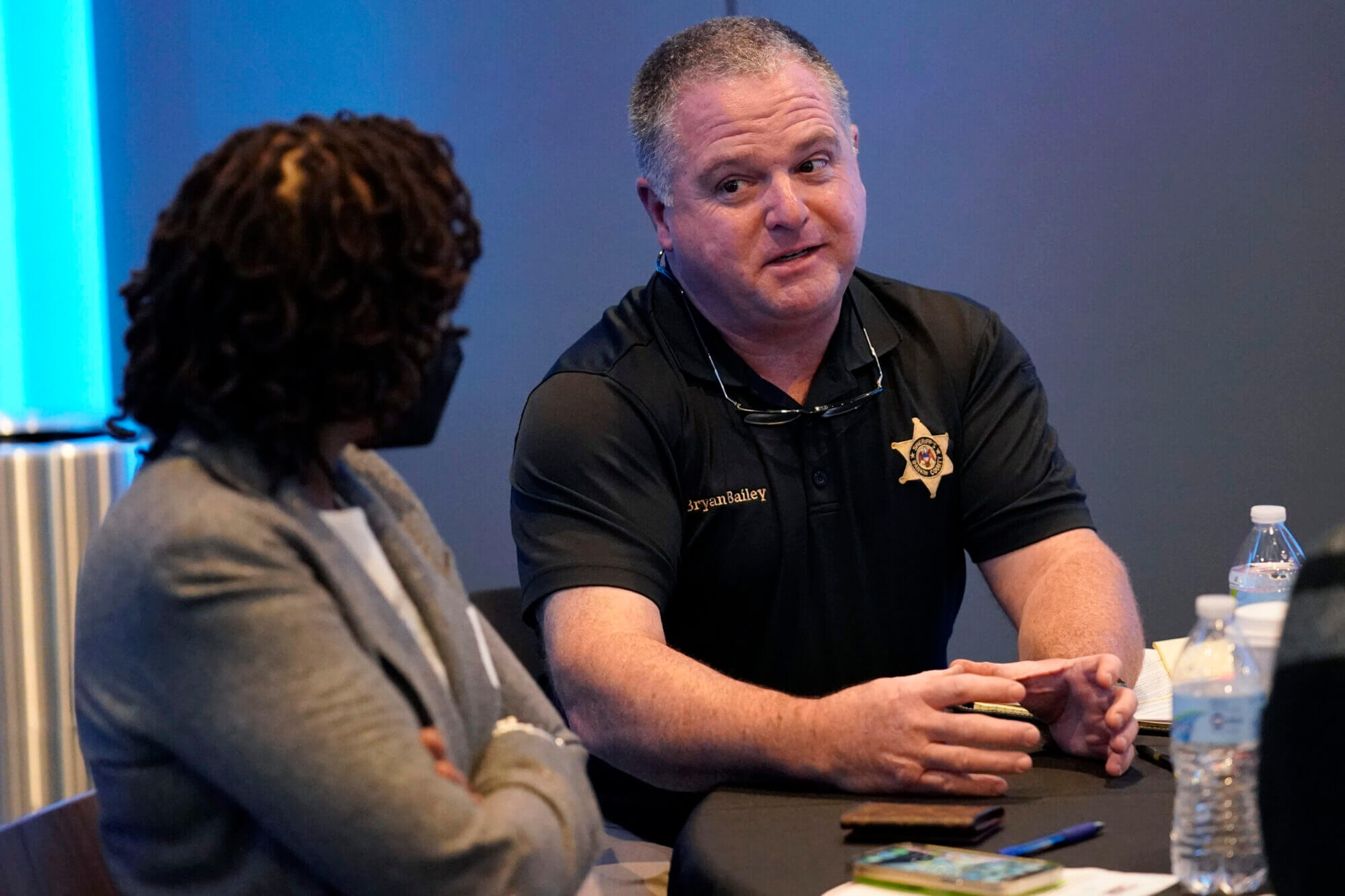
It is unclear whether Bailey saw the incident or when he left the room. Shivers said he could not recall whether the sheriff was nearby when he arrived with Richards.
A group of guards and trusties dragged Richards into the jail’s dressing room, which was known to not have cameras, and beat him, according to four former inmates familiar with the incident.
They saw Richards in the days following, and said his face was swollen and his neck was ringed with bruises.
“They did a number on him,” Reed said.
Richards declined to comment for this article, citing fears for his safety. Bailey declined a request to comment, deferring to the department’s attorney. In a statement, Dare, who called the reporting “baseless,” did not address whether Bailey was present during the incident.
The department did not produce reports detailing Richards’s capture despite repeated requests.
During email exchanges with reporters, Dedmon recounted the sheriff bragging to him and others about how Shivers had choked an inmate who had escaped.
“Bailey used to talk about it,” Dedmon wrote. “I can just remember Bailey saying, ‘Wes held him up against the wall with one hand.’”
A ‘satisfactory response’
Mississippi Today and The Times obtained formal grievance documents from lawyers who sued the department, providing a rare window into how jail officials handled inmate complaints. From 2018 to 2022, eight inmates filed grievances that described assaults by guards or trusties.
In 2022, Rives, the inmate whose jaw was broken by a guard, filed a grievance. Jail incident reports show that after Rives was struck, guards strapped him into a restraint chair overnight and then locked him in an isolation cell for 25 days. It was there where he filed his grievance, saying he had not been taken to the hospital. His jaw was infected by the time he was hospitalized and required surgery, according to medical records.
“ It never healed,” he said. “ If I take a bite out of a hamburger, it’ll lock up and pop and grind like you wouldn’t believe.”
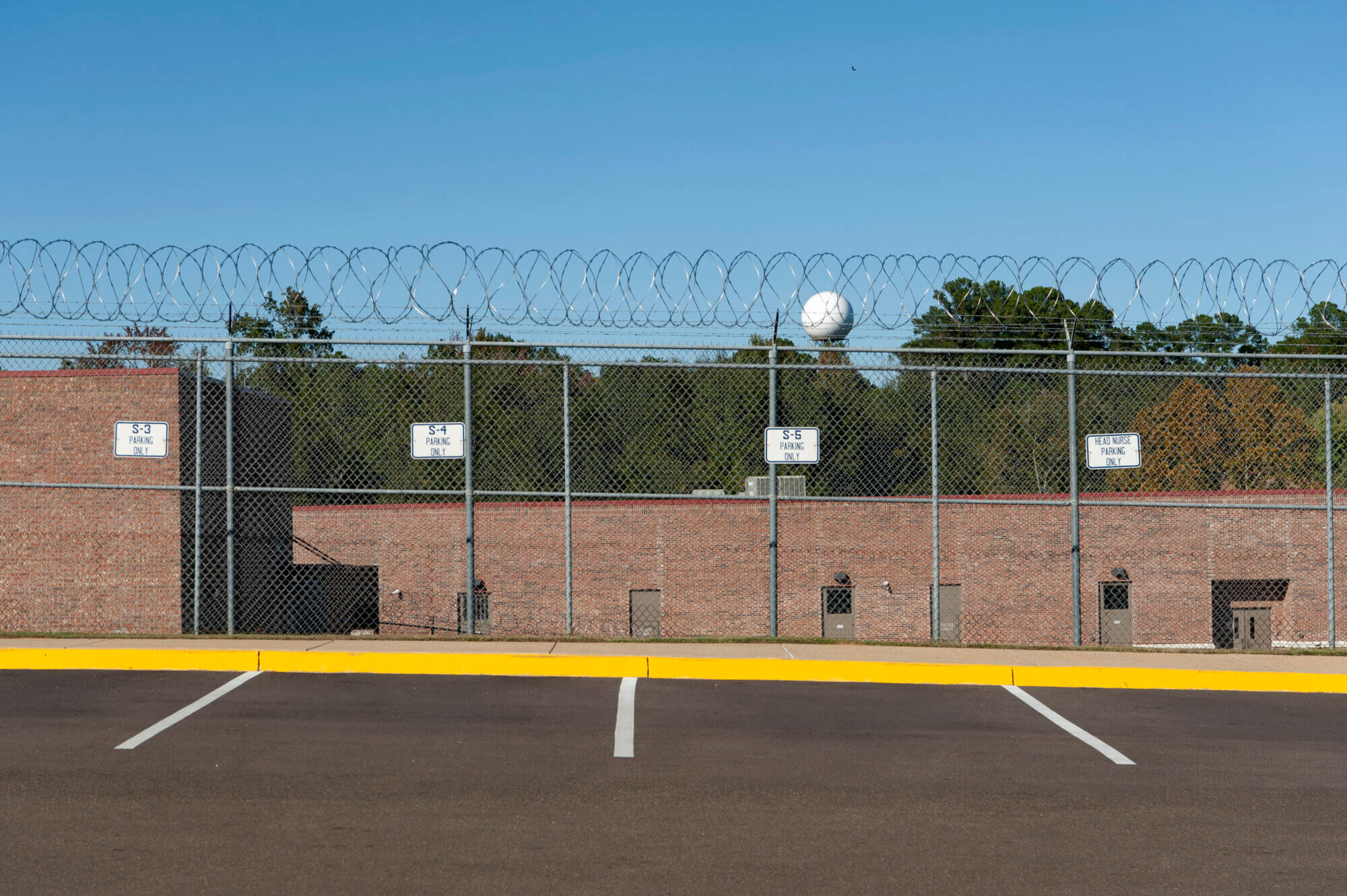
A report from Rives’s grievance file shows that a supervisor closed his complaint three days after it had been filed, saying the department had documented the incident and provided a “satisfactory response,” which included scheduling a hospital visit for Rives and informing him that he could not press criminal charges against the guard while incarcerated.
Rives said the department did not contact him again.
The report does not indicate whether the guard who broke Rives’s jaw, Jordan McQueary, was disciplined or questioned about the incident. Rives is among at least nine inmates who have filed complaints or federal lawsuits claiming they were assaulted by McQueary, who still works at the department.
Last year, the department honored McQueary for his “outstanding” work.
He did not respond to requests for comment.
At least six other grievances were closed under similar circumstances, with no indication that the guards or trusties accused of violence were interviewed or disciplined.
Supervisors also listed “satisfactory response” as the reason for closing three other complaints. The forms do not define the term, and department representatives did not respond to requests for clarification.
Defending the trusty program
Two former trusties who spoke to Mississippi Today and The Times about their experiences said they have since been confronted by jail officials about their interviews.
John Phillips, a former trusty who said he witnessed and participated in violence between 2017 and 2021, was brought back to the Rankin County jail in August to face new criminal charges.
While there, he was taken to Vaughn’s office, where Vaughn and Dare questioned him about what he had told the publications.
Phillips then wrote and signed a statement contradicting the comments he had made to reporters. His lawyer was not present during the meeting, Phillips and Dare said.
“I never seen anything that the news reporters are talking about when spoken about inmates on inmates or the Blue Wave,” the statement reads, according to a copy provided by Dare. “There is no wrong doing at the Rankin jail or in the program.”
In a later interview, Phillips stressed that his statements to reporters had been true, and that he had felt pressured by the officials to write the letter. Dare said he had not pressured Phillips. He provided a recording of a portion of the August interaction in which Phillips says he is giving his statement voluntarily.
Dare said that he had collected similar statements from several other former trusties, but he declined to share their names.
“I sit down and try to meet with folks, figure out what they know,” he said in an interview last month. “I’m trying to defend the trusty program, that’s all.”
This story was co-reported by Steph Quinn. Jerry Mitchell, Lili Euzet and Leonardo Bevilacqua contributed reporting.
- Former Greenwood police officer pleads guilty to federal drug trafficking charges - February 27, 2026
- UMMC officials say normal operations will resume Monday after cyberattack - February 27, 2026
- Hinds County public defender: Office needs additional funding to avert constitutional crisis - February 27, 2026